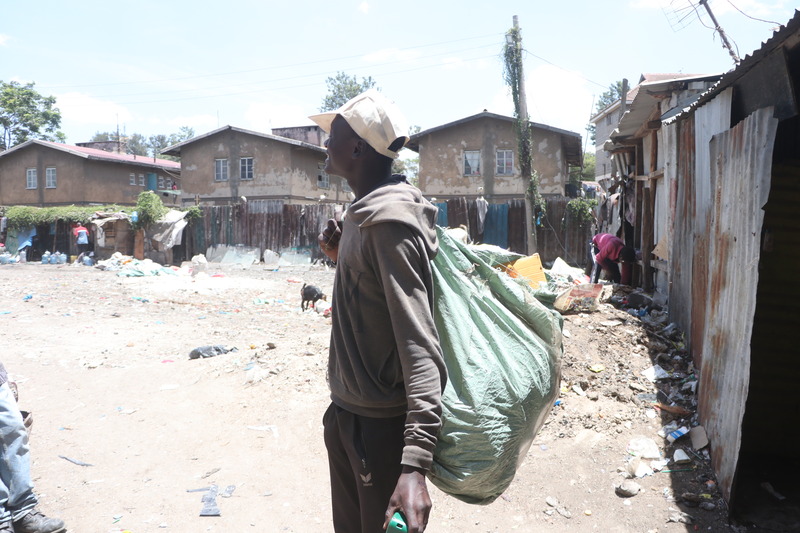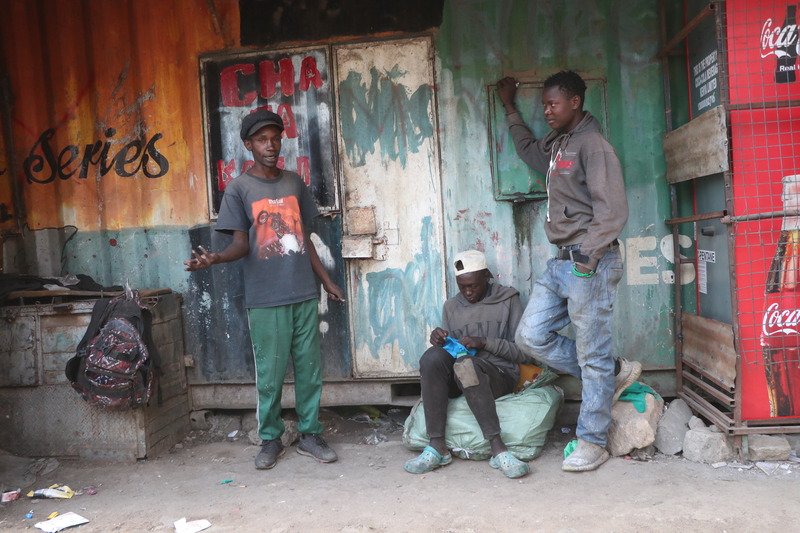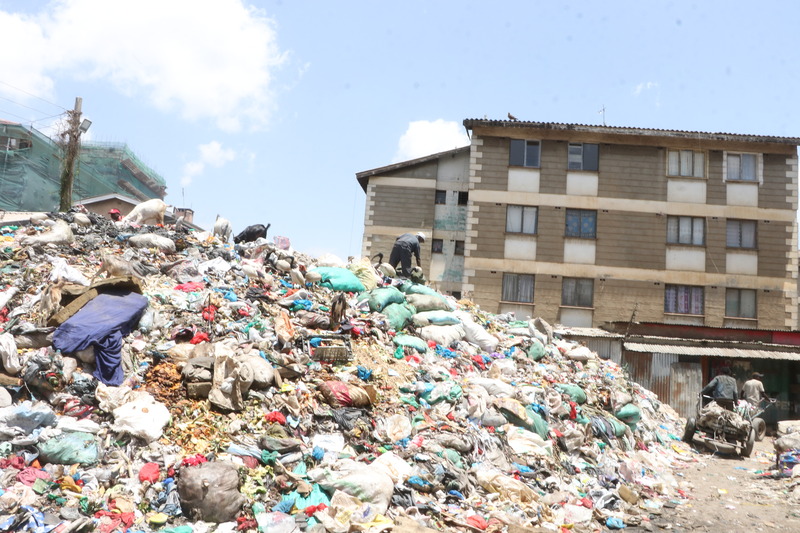In the shadows: Street children in Eastleigh take on garbage collection jobs for survival

While some may prefer collecting plastic, some street dwellers are willing to accept any job offered to them, particularly those considered dirty or undesirable.
Young individuals, especially minors, wandering in the streets with oversized, dirt-caked sacks and ragged clothing is a common sight in many urban areas.
And just like any other town in Nairobi, Eastleigh attracts a diverse population, including street children. While there's a widespread assumption that these children are often causing trouble, some are genuinely trying to make ends meet by engaging in menial jobs.
More To Read
- Court hears how police surveillance systems tracked suspects in Ahmed Rashid murder case
- Residents demand action as borehole drilling company renders Yusuf Haji Avenue impassable
- Safaricom’s Ndoto Zetu initiative elevates maternal health in Kamukunji's Eastleigh with bed donation
- Eastleigh residents slam City Hall over shoddy repairs on Athumani Kipanga Street, demand permanent fix
- Mahiza Cafe and Bakery: Eastleigh’s chocolate and dessert factory serving pistachio dreams, boba, and halal elegance
- How Eastleigh rewrote its colonial name into a Kenyan-Somali powerhouse
While some may prefer collecting plastic, some street dwellers are willing to accept any job offered to them, particularly those considered dirty or undesirable.
Some neighborhoods and business owners in the food industry who opt for cheaper labor have contracted some street dwellers for garbage collection.
In certain parts of Kamukunji Constituency, residents and traders opt to employ street children for garbage collection, though many end up being underpaid.
 A group of street dwellers at Majengo dumping site in Eastleigh on March 21, 2024. (Photo: Justine Ondieki).
A group of street dwellers at Majengo dumping site in Eastleigh on March 21, 2024. (Photo: Justine Ondieki).
John Karioki is among the street children out to make ends meet. He found himself alone in Nairobi after losing his mother and grandmother. His journey from Molo to Nakuru, and then to Nairobi, eventually led him to settle in Eastleigh due to its perceived safety over the CBD.
Their daily routine revolves around gathering refuse from different places, with some individuals generously compensating them while others offer meager pay. They are however accused of dumping the waste indiscriminately.
"We don't discriminate against any type of work. We're willing to do whatever is available as long as it ensures we have food to eat and some money to sustain ourselves," said John.
The issue of garbage buildup has long plagued Eastleigh and various parts of Nairobi, with exploitation prompting some street dwellers to carelessly discard waste, according to John.
It's not uncommon to come across scattered piles of trash throughout the area, with some waking up to find heaps of rubbish outside their businesses and homes.
 A mountain of garbage in Majengo, Eastleigh, on February 21. 2024. (Photo: Justine Ondieki)
A mountain of garbage in Majengo, Eastleigh, on February 21. 2024. (Photo: Justine Ondieki)
John acknowledges the harsh realities of street life and expresses a willingness to grasp better opportunities if they come his way.
Despite earning approximately Sh200 on a good day, the money barely covers his expenses for drugs and sustenance.
Similarly, Julius Mkavana, who also found refuge in Eastleigh's streets, shares his experiences of being undervalued and exploited for labor, primarily due to societal prejudices against those living on the streets.
Julius highlights the challenges faced by street people, including performing menial and sometimes hazardous tasks without adequate compensation. Despite these hardships, they often feel compelled to accept whatever is offered due to the limited options available and for survival.
Other street dwellers claim they are often hired for laborious tasks and end up being paid with food or whatever their employers deem appropriate.
With garbage collection being among the jobs available for these individuals, residents claim they contribute to the garbage menace because they dump waste indiscriminately since they lack a sense of accountability.
The street dwellers' menace was highlighted in the 2019 census. More than 20,000 Kenyans are experiencing homelessness. Nairobi emerges as the focal point of the issue, with a staggering 6,743 street dwellers, including 679 women. Mombasa and Meru follow closely, with 1,809 and 734 homeless individuals, respectively.
Top Stories Today













































